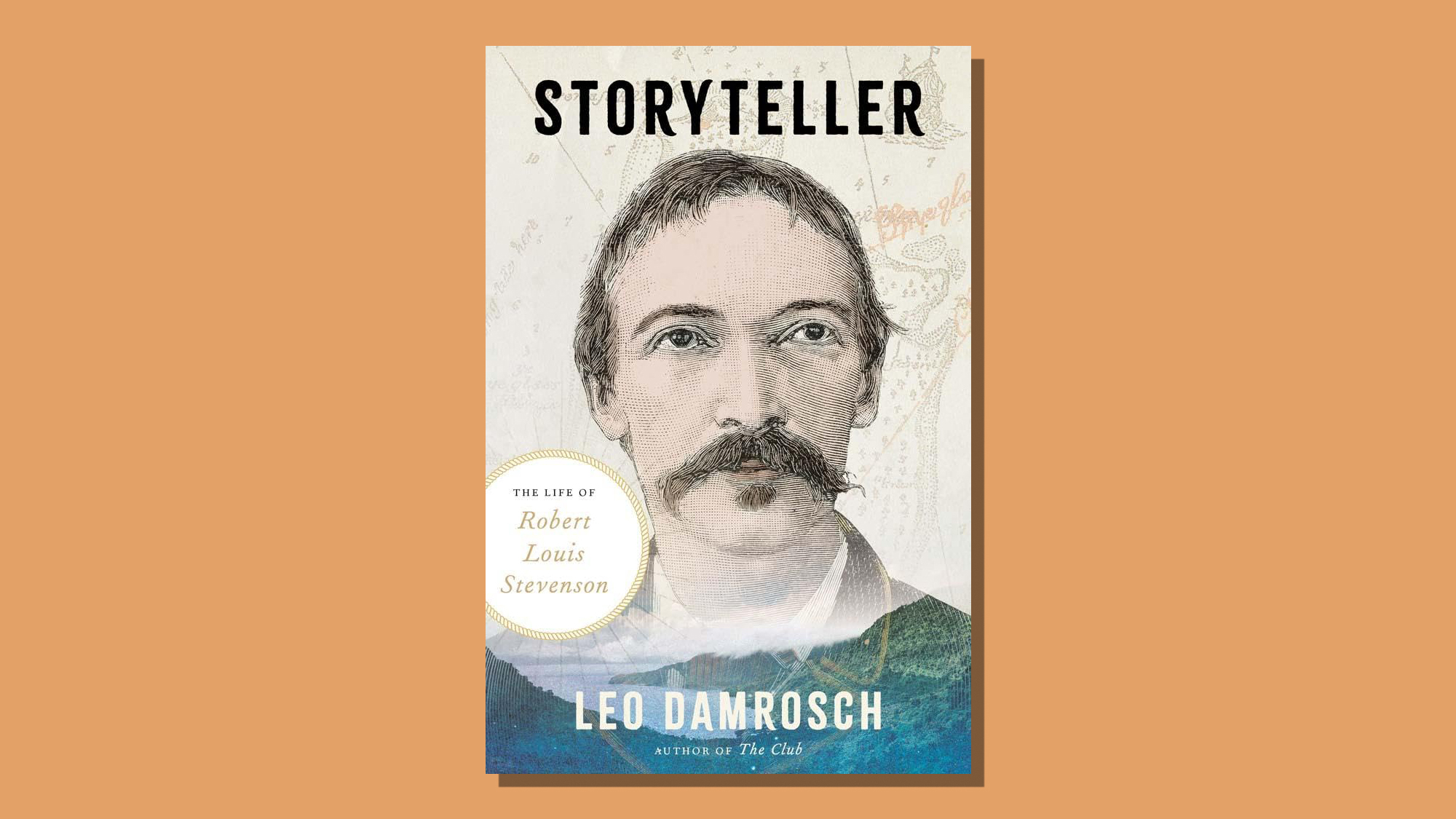Congrats on getting a new slogan, Democrats. It might just be dumb enough to work.
Go ahead and print up those bumper stickers


The long and arduous search is over, my friends. Polls have been taken, focus groups have been convened, ideas have been workshopped, brains have been stormed and racked. And now, Democrats have found what they've been looking for:
"A Better Deal."
That is their slogan for 2018 and beyond. Behold its majesty. Bask in its glow.
The Week
Escape your echo chamber. Get the facts behind the news, plus analysis from multiple perspectives.

Sign up for The Week's Free Newsletters
From our morning news briefing to a weekly Good News Newsletter, get the best of The Week delivered directly to your inbox.
From our morning news briefing to a weekly Good News Newsletter, get the best of The Week delivered directly to your inbox.
Or not. Actually, it's ... fine. There's nothing terribly wrong with it, as slogans go. It suggests that there's a deficient deal now in operation, which is perfectly true, and that Democrats offer you something better. It's vague enough to incorporate almost any policy, at least any domestic policy. But would it actually persuade anyone who was voting Republican to vote Democratic?
Almost certainly not. But Democrats have convinced themselves that what they lack is a "message," by which we mean a distillation of their myriad policy positions into something simplistic enough to be understood by even the most blockheaded voter.
Does that sound elitist? Sorry, it's true. In fact, most of the public aspect of our politics is about Democrats and Republicans trying to find the right combination of "messages" that will persuade voters so ill-informed they can't choose between two radically different parties with agendas that would take the country in completely different directions.
Think about it this way: Would you ever be persuaded to change your vote because of a slogan? Of course you wouldn't. If you care enough about politics to be reading this article, you surely find the very idea ludicrous. And if all citizens were as informed as you, neither party would need a "message" and we'd barely need to run campaigns.
A free daily email with the biggest news stories of the day – and the best features from TheWeek.com
But maybe the great mass of voters isn't persuaded either. It's hard to know for sure, but all too often we retrospectively attribute great power to things like slogans that probably made little if any difference. Everything the winners did in an election is assumed to have been brilliant, while everything the losers did is assumed to have failed completely.
Take, for example the Contract With America. In 1994, Newt Gingrich and GOP pollster Frank Luntz came up with some poll-friendly ideas for things Republicans would promise to do if they took over Congress, some of them procedural and some of them substantive. After they did indeed sweep the elections, they proclaimed that the public had practically ordered the lawmakers to pass each and every element of the Contract, giving them a mandate for change. For years, they'd cite it as evidence that if you present the voters with a clear explanation of your plans, they'll reward you with victory.
The only trouble was that most voters had never even heard of it, and fewer still could have told you what was in it. The story of the Contract With America was largely one crafted after the fact to explain what Republicans wanted to believe about their win and support for their agenda. Likewise, if the Democrats go around talking about their "Better Deal" and wind up taking back the House next year, they'll tell themselves it was genius.
But here's some important context for the current moment. Reserving judgment on the impact "A Better Deal" might have, Democrats certainly don't have a "message," at least not one that they all agree on and that sums up everything the party believes. But they're actually in about as good a position looking toward 2018 as they could be, message or not. Don't worry about the fact that they lost a bunch of special elections for Congress — those were all in deeply Republican districts (and they outperformed their previous performance in every one). Look at what's happening elsewhere.
The left is experiencing an unprecedented wave of activism, with groups like Indivisible creating thousands of chapters and local Democratic party organizations inundated with volunteers. In cities and towns, Democrats are running on aggressively progressive platforms and winning. Democrats lead the "generic ballot" test (where poll respondents are asked whether they intend to vote for a Democrat or Republican for Congress) by an average of 6.5 points, which according to one statistical model would translate to a net gain of 27 House seats in next year's election (they need 24 to take control). One after another, potentially strong Republican candidates are choosing to sit out the next election or stay in their current seats, while Democrats are lining up to run for the first time or try for a higher office.
Oh, and President Trump's approval rating is in the toilet. We've only had a couple of presidents whose ratings were as low as Trump's are now when they went in to a midterm election, so the past can only tell us so much, but with similar approval, George W. Bush's party lost 31 seats in 2006 and Harry Truman's lost 45 in 1946.
There's a lot of time between now and November 2018, and things could change dramatically. Donald Trump could turn out to be an extraordinary president whose wisdom, forbearance, and strategic insight rally all Americans to his cause and make them eager to support him by electing more Republicans to Congress. Or perhaps not.
If you listen to members of Congress, and the journalists and pundits who report on them, the Democrats are a party that doesn't know what it's doing. They don't have a clear message, and this void is the cause of all their past troubles. Only if they succeed in finding that message can they win again, in 2018 and beyond. But if you look out in the rest of the country, things actually look pretty darn good for Democrats.
But go ahead and print up those "A Better Deal" bumper stickers. It might not help, but it probably won't hurt.
Paul Waldman is a senior writer with The American Prospect magazine and a blogger for The Washington Post. His writing has appeared in dozens of newspapers, magazines, and web sites, and he is the author or co-author of four books on media and politics.
-
 The twists and turns in the fight against HIV
The twists and turns in the fight against HIVThe Explainer Scientific advances offer hopes of a cure but ‘devastating’ foreign aid cuts leave countries battling Aids without funds
-
 Storyteller: a ‘fitting tribute’ to Robert Louis Stevenson
Storyteller: a ‘fitting tribute’ to Robert Louis StevensonThe Week Recommends Leo Damrosch’s ‘valuable’ biography of the man behind Treasure Island
-
 Is Europe finally taking the war to Russia?
Is Europe finally taking the war to Russia?Today's Big Question As Moscow’s drone buzzes and cyberattacks increase, European leaders are taking a more openly aggressive stance
-
 Has Zohran Mamdani shown the Democrats how to win again?
Has Zohran Mamdani shown the Democrats how to win again?Today’s Big Question New York City mayoral election touted as victory for left-wing populists but moderate centrist wins elsewhere present more complex path for Democratic Party
-
 Millions turn out for anti-Trump ‘No Kings’ rallies
Millions turn out for anti-Trump ‘No Kings’ ralliesSpeed Read An estimated 7 million people participated, 2 million more than at the first ‘No Kings’ protest in June
-
 Ghislaine Maxwell: angling for a Trump pardon
Ghislaine Maxwell: angling for a Trump pardonTalking Point Convicted sex trafficker's testimony could shed new light on president's links to Jeffrey Epstein
-
 The last words and final moments of 40 presidents
The last words and final moments of 40 presidentsThe Explainer Some are eloquent quotes worthy of the holders of the highest office in the nation, and others... aren't
-
 The JFK files: the truth at last?
The JFK files: the truth at last?In The Spotlight More than 64,000 previously classified documents relating the 1963 assassination of John F. Kennedy have been released by the Trump administration
-
 'Seriously, not literally': how should the world take Donald Trump?
'Seriously, not literally': how should the world take Donald Trump?Today's big question White House rhetoric and reality look likely to become increasingly blurred
-
 Will Trump's 'madman' strategy pay off?
Will Trump's 'madman' strategy pay off?Today's Big Question Incoming US president likes to seem unpredictable but, this time round, world leaders could be wise to his playbook
-
 Democrats vs. Republicans: who are US billionaires backing?
Democrats vs. Republicans: who are US billionaires backing?The Explainer Younger tech titans join 'boys' club throwing money and support' behind President Trump, while older plutocrats quietly rebuke new administration
